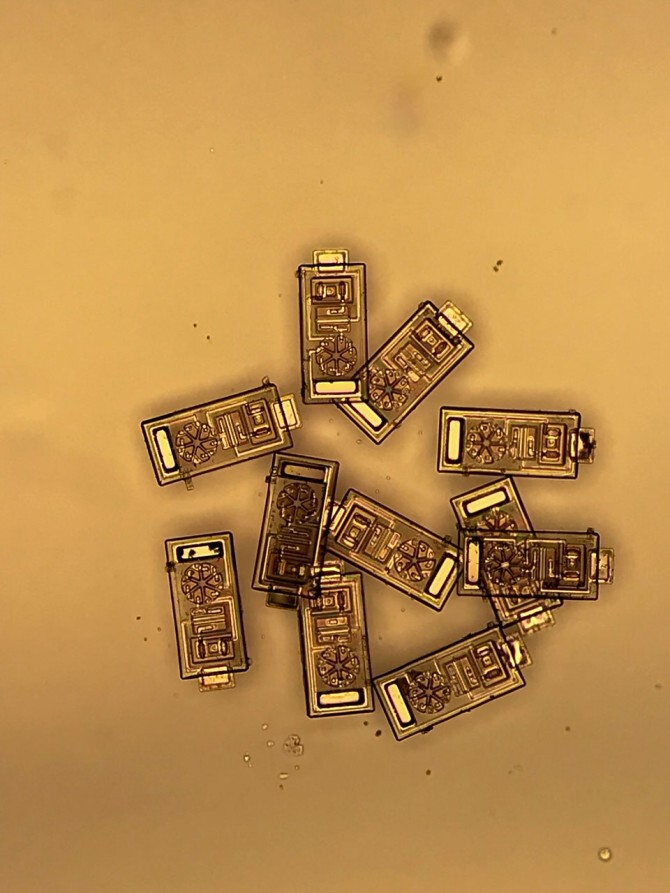
OWiC Technologies is developing tiny generators for large-scale drug discovery
The Cornell spinout OWiC Technologies is developing smart chips that convert light into small electrical impulses. The glitter-sized devices provide a faster and more efficient process for new drug discovery and other electrochemical process developments.
New candidates for pharmaceutical development are chemically modified to evaluate many different formulation options to find the optimal results. Many researchers and industry experts believe that using electricity – a method called electrolysis – would be faster and more efficient. But labs today need complex and expensive equipment to implement electrolysis at scale, impeding large-scale, rapid development efforts.
OWiC’s chips are sized precisely so that they can be used in the high-throughput 96 or 384 cell wellplates already found in every drug development laboratory. As a result, the OWiC innovation improves the scalability of electrolysis, giving it the potential to dramatically streamline drug discovery.
The company recently secured a $2.3 million grant from the National Institutes of Health to commercialize the technology for the pharmaceutical industry.
OWiC’s technology is built on research led by Professors Paul McEuen, Song Lin, and Alyosha Molnar and assisted in part by the Cornell Nanoscale Science and Technology Center. OWiC benefits from mentorship, business consulting, and other incubation support as a client of the Praxis Center for Venture Development. The company has also received support from the Cornell-led National Science Foundation Interior Northeast I-Corps Hub, administered by the Center for Regional Economic Advancement.


